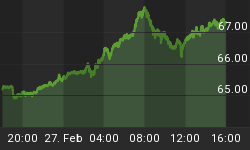Once the excitement of taking over a country settles, such as checking out the presidential gym and enjoying some fun on bumper cars, Afghanistan’s new Taliban authorities will face the same issues any other government will: how to finance the country.
Following the Taliban's takeover of the country last weekend, many international financial institutions have blacklisted the new government, and the currency is in freefall.
On Thursday, the International Monetary Fund (IMF) decided that Afghanistan would no longer be able to access its resources.
The lender said that resources of over $370 million had been set to arrive later this month. The funds were approved last November and intended to support Afghanistan’s recovery from the Covid-19 pandemic, anchor economic reforms, and spur donor financing.
An IMF spokesperson said it was due to "lack of clarity within the international community" over recognizing a government in Afghanistan.
The IMF’s decision follows a letter of more than a dozen GOP lawmakers to Treasury Secretary Janet Yellen expressing alarm over IMF funds heading to the Taliban.
“The potential of the Special Drawing Rights (SDR) allocation to provide nearly half a billion dollars in unconditional liquidity to a regime with a history of supporting terrorist actions against the United States and her allies is extremely concerning,” they wrote.
Earlier this week, the Biden administration also announced that central bank assets the Afghan government has in the U.S. would not be made available to the Taliban, who remain on the Treasury Department’s sanctions designation list in the aftermath of the 9/11 attack.
According to the media, the U.S. has frozen nearly $9.5 billion in assets belonging to the Afghan central bank and stopped shipments of cash there.
Reuters cited an Afghanistan official saying that the country's central bank, Da Afghanistan Bank (DAB) is thought to hold foreign currency, gold and other treasures in its vaults--most of which is said to be held outside Afghanistan.
In addition to that, Western Union has also suspended money transfer services to Afghanistan "until further notice".
According to data compiled by Bloomberg, the country's currency Afghani has fallen as much as 4.6% to 86.0625 per dollar on its fourth day of decline.
The Taliban won’t be able to easily finance Afghanistan on its time-honored trade of opium poppy farming, which it has pledged to ban. Afghanistan is estimated to be responsible for around 80% of global opium and heroin supplies.
According to a UN report from June, the "primary sources of Taliban financing remain criminal activities," including "drug trafficking and opium poppy production, extortion, kidnapping for ransom, mineral exploitation and revenues from tax collection in areas under Taliban control or influence."
But the alleged new and improved Taliban have promised not to be a drug-dealing cartel any longer (along with pledges to respect women’s rights to some extent and to cease retaliatory violence). It would hardly behoove the IMF to fund the world’s biggest heroin operation.
Following this week's IMF and U.S. financial intervention, and considering that some 75% of public spending is financed through international aid grants, many believe that without opium, the Taliban can’t survive.
So far, there is no evidence of any change of heart.
Dozens of reports have emerged claiming that those failing to comply with Sharia law or Taliban “virtues” are being beaten up and tortured, mostly women and those who cooperated with U.S. forces in the country.
The United Nations has warned that the Taliban are searching for people who worked with U.S. and NATO forces and are going “door to door” to find them.
On Thursday, hundreds of demonstrators came out in the capital, Kabul, and other cities to protest the Taliban regime. Those protests were quickly squashed.
















